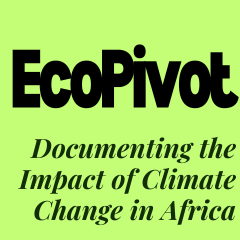The inaugural International Conference on Afforestation and Reforestation opened with powerful remarks from Deputy Secretary-General Amina Mohammed, celebrating the vision and progress made in addressing global deforestation and forest degradation.
“We congratulate President Sassou-Nguesso for his vision on afforestation and reforestation launched in 2022, at UNFCCC COP27, in Sharm El Sheikh, and the fruition of his initiative in this gathering,” Mohammed began, acknowledging the significant strides taken by Congo’s leadership. “You have given life to your ambitious vision.”

The Deputy Secretary-General highlighted the urgency of the situation, noting, “Today, our promises in the Paris Agreement are in crisis; the 1.5°C world we need is in the emergency room. Our ecosystems are being threatened.“
She emphasized the critical role forests play in sustaining life on Earth, stating, “Forest ecosystems are the life support of our planet. Their multiple benefits must be valued as powerful assets to accelerate national sustainable development pathways to improve the lives of all people, especially women and youth.“
Praising the unique ecological landscape of Brazzaville, she said: “Here in green Brazzaville, we witness expansive forests and peatlands, vital rivers and water resources swathed by unique flora and fauna. The interconnections of this web of life involve a balanced interaction of the traditional knowledge and custom of indigenous and local communities,” she remarked.
However, the Deputy Secretary-General warned of the pressures faced by these vital ecosystems. “Yet, our forests as a source of life – for our economies, our people, and the planet – are under considerable pressure by continued trends of deforestation and forest degradation,” she said. To counter these threats, Mohammed called for a “robust enabling environment and systemic approach to deliver on a package of socio-economic transformative outcomes.“

Highlighting global and regional efforts, Mohammed mentioned, “Efforts to tackle deforestation have been taken through global frameworks and targets under the Paris Agreement, the Kunming-Montreal Global Biodiversity Framework, and the United Nations Strategic Plan for Forests.” She also noted the importance of initiatives like the African Forest Landscape Restoration Initiative (AFR100) in elevating political attention and fostering partnerships across countries and regions.
“The message is not only to preserve the world we live in but to improve the lives of everyone,” she stressed. As part of the 2030 Agenda, Mohammed emphasized the mission of achieving a green economic transition that ensures “sustainable supply, security, and resilience of our natural resources, while at the same time contributing to job creation and opportunities for social and economic prosperity.“
Mohammed outlined the path forward, advocating for “regulatory frameworks, strengthened institutions, pipelines of sustainable projects, and integrated financing strategies” to support this vision. She commended African leaders for their transformative efforts, specifically highlighting the Great Green Wall Initiative and its focus on “regional integration, local ownership, and inclusive people-centered approaches to restore landscapes and build resilience and jobs.“
The Deputy Secretary-General made a remark on the importance of financial and technological support in these efforts. “The Conference has highlighted that domestic resource mobilization, with long-term international development finance, can deliver impact, unlocking access to private financing, while ensuring accountability of all actors,” she said. Additionally, she pointed out that “bridging the digital and data gaps through science, technologies, and innovation can also create new opportunities to monitor and evaluate restoration activities, empowering women and youth to the task.”
Looking ahead, Mohammed urged nations to incorporate afforestation and reforestation targets into their Nationally Determined Contributions by 2025 and to attract public and private investments at scale.
She called for innovative financial mechanisms, emphasizing that “carbon markets, for example, must ensure high integrity emission reductions, respecting the rights and livelihoods of indigenous and local communities, while safeguarding biodiversity and guaranteeing permanence, accountability, and transparency.“
In closing, the Deputy Secretary-General issued a call to action, urging delegates to carry the momentum of the Conference forward: “As you take the outcomes of the Conference back, I urge you to carry this momentum and make sure that your voices are heard – at home and across the world,” she said. She concluded by highlighting the global significance of forest basins like the Congo, Amazon, and Borneo-Mekong, referring to them as “the lungs of the world” and calling for continued leadership in the green transition.
Read the full Remarks HERE


